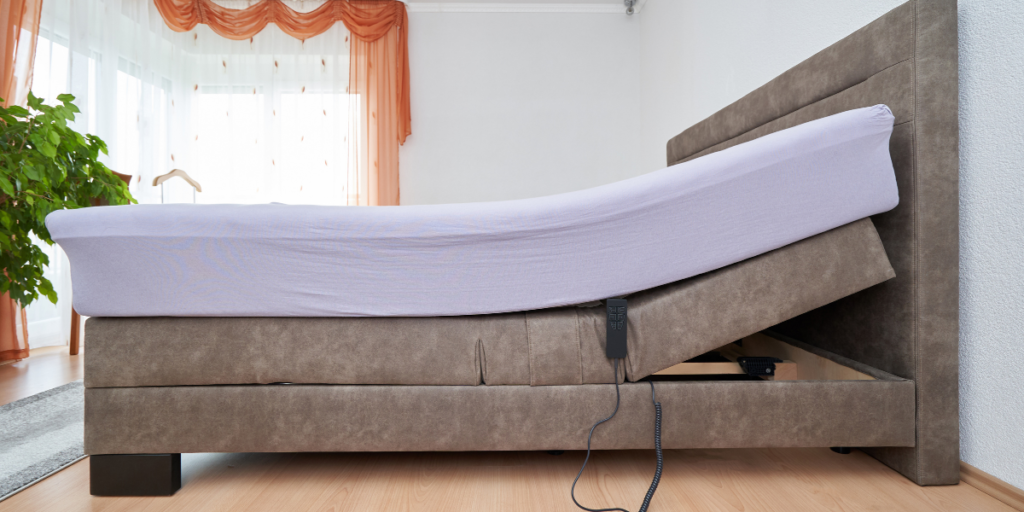“Burp”, “Burppppppp”, “Burppppppppppp”. Lucas has been burping non-stop for the past one hour, feeling a sense of heat in the upper stomach.
This has happened quite frequently lately, and the burning sensation has become more intense every time it occurs.
Lucas became concerned that something might be wrong with his stomach. He decided to visit the doctor and after some examination, the doctor suspected that Lucas is suffering from GERD.

What is GERD?
GERD is the abbreviation for Gastroesophageal Reflux Disease. Gastroesophageal is a tube connecting our mouth (esophagus) and stomach while Reflux is a burning sensation in our chest that may cause a sour or bitter taste at the back of our mouth.
While having heartburn (acid indigestion) can be a common symptom of GERD, there is a list of symptoms to look out for when suffering from GERD.
This includes vomiting, coughing and breathing problems, nausea, bad breath, a hard time swallowing, wearing away of tooth enamel and a lump in the throat.
Some may experience acid reflux at night which can cause, a lingering cough, laryngitis (inflammation or swelling of the vocal cords), asthma that comes suddenly or gets worse and sleep problems.

Lucas became anxious as the symptoms described are what he has been experiencing for the past month. However, the doctor reassured him that they need to carry out some screenings for further examinations.
How’s screening done?
Endoscopy
A tiny camera will be inserted into the esophagus to look for inflammation of the esophagitis (tissue of esophagus). It is also often used to collect samples of tissue (biopsy) to be tested for complications such as Barrett’s esophagus. An endoscopy typically takes about 15 minutes to 30 minutes and leaves minimal discomfort.

Upper GI series:
An X-ray of our esophagus, stomach, and upper part of the small intestine (duodenum) is taken after taking a chalky liquid that coats and fills our digestive tract. We may also be asked to take a barium pill to diagnose any narrowing of our esophagus that may interfere with swallowing.

Esophageal manometry and impedance study
It is used to measure the rhythmic muscle contractions and checks for low pressure in the esophagus. The impedance study measures the amount and type of gastroesophageal reflux in the esophagus. These tests will be able to show the effectiveness of food moving from the esophagus to the stomach.

Ambulatory acid (pH) probe test
A monitor will be placed in our stomach to identify when, and for how long, stomach acid regurgitates there. It is either threaded through our nose into the esophagus or placed in our esophagus during an endoscopy. It’ll be gone after about two days when we pass stool.
After carrying out the screening, the doctor confirmed that Lucas is suffering from GERD and prescribed some medications for Lucas to consume.
How do I treat GERD?
Antacids
It helps neutralize the acid in the esophagus and stomach to temporarily relieve heartburn. Long-term use of antacids can cause side effects such as diarrhea, altered calcium metabolism and build-up of magnesium in the body.
H2 blockers
H2 blockers are prescribed when a patient has chronic reflux and heartburn to help block acid secretion in the stomach.
Proton Pump Inhibitors (PPIs)
PPIs, a.k.a acid pumps help block a protein that is needed to produce stomach acid. Its side effects include diarrhea, headache, nausea and vitamin B-12 deficiency.
Prokinetics
It helps with symptoms like bloating, nausea and vomiting. It can cause serious side effects and are not to be consumed without a doctor’s prescription.

When examining Lucas, the doctor finds out that Lucas is a heavy smoker and is slightly overweight as he likes eating fried foods. He’s also always busy and would eat as fast as he could so that he can get back to work. These, the doctor believed are what causes the bad reflux.
The doctor also advised Lucas to change some of his unhealthy lifestyles so that he wouldn’t come back with worse complications.
Maintain a healthy weight
Being overweight or obese can put too much pressure on one’s abdomen, pushing the stomach and causing acid to reflux into the esophagus.

Quit smoking
The nicotine from tobacco relaxes the valve between the esophagus and stomach allowing stomach acid to reflux into the esophagus.
Eating habits
Eating slowly and chewing 30 times between each bite will help us avoid swallowing too much air. There are some common food triggers one should avoid, including fried or fatty food, tomato products, alcohol, chocolate, mint, garlic, onion, and caffeine.
Sleeping habits
Avoid lying down immediately after a meal. It is recommended that we wait at least 3 hours after eating before going to bed. To reduce reflux of stomach contents into our esophagus, we can elevate our bed’s head by using blocks or sleeping on a specially designed bed.

Before Lucas leaves, the doctor carefully reminds Lucas of the seriousness of GERD. If left untreated, GERD can cause some severe complications.
What are the complications?
Esophageal ulcer
It’s an open sore in the esophagus caused by the corrosion of stomach acid. It’s often very painful and may cause bleeding.
Esophageal stricture
Scar tissues are formed at the lower part of the esophagus due to the damage of stomach acid. It is what caused a patient to find swallowing hard as the esophagus is narrowed down by the build-up of the scar tissue.
Barrett’s esophagus
Acid reflux caused the lining of the esophagus to thicken and turn red. This may lead to esophageal cancer.
Lungs problem
It can cause irritation and pain if the acid reflux reaches the back of the throat. One can develop asthma, bronchitis or even pneumonia if the lungs get inflamed.

Lucas thanked the doctor and promised that he will change his unhealthy lifestyle and take care of his body. It is fortunate that his condition is mild and that he visits the doctor at an early stage.
Takeaway
Early-stage GERD is generally treatable. However, we should never ignore symptoms as they may develop into severe complications if left untreated. A person may recover from GERD over time, but if they continue to lead an unhealthy lifestyle, it may recur. If you believe that you may be suffering from GERD symptoms, seek medical advice as soon as possible.
References
- https://www.webmd.com/heartburn-gerd/guide/reflux-disease-gerd-1#:~:text=Gastroesophageal%20reflux%20disease%2C%20or%20GERD,get%20heartburn%20or%20acid%20indigestion.
- https://www.mayoclinic.org/diseases-conditions/gerd/symptoms-causes/syc-20361940
- https://aboutgerd.org/what-is/introduction-to-gerd/
- https://www.mayoclinic.org/diseases-conditions/gerd/diagnosis-treatment/drc-20361959
- https://www.medicalnewstoday.com/articles/14085
- https://www.healthline.com/health/gerd
- https://www.aaaai.org/Conditions-Treatments/related-conditions/gastroesophageal-reflux-disease